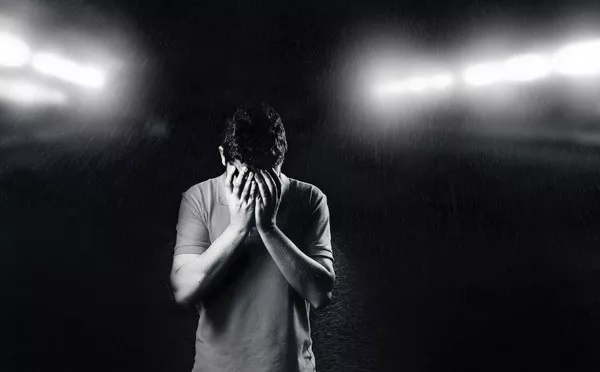A cancer diagnosis is a life-altering event for anyone, but for children, it can be particularly devastating. Childhood cancer is rare, affecting approximately 1 in 285 children in the United States before the age of 20. However, the emotional and psychological toll that cancer can take on a child, as well as their family members, is profound. In addition to the physical challenges of undergoing cancer treatment, such as chemotherapy, radiation, and surgery, children face emotional battles that can last well beyond the treatment phase. These psychological effects can affect not only the child diagnosed with cancer but also their siblings, parents, and caregivers. It is crucial to understand the mental health impacts of childhood cancer so that appropriate interventions and support systems can be put in place to help children and families cope with the challenges they face. In this article, we will explore the psychological effects of childhood cancer, the emotional struggles children with cancer may experience, and ways to address these challenges.
Emotional Impact of Childhood Cancer Diagnosis
When a child is diagnosed with cancer, the immediate emotional impact can be overwhelming. For the child, the news may be met with confusion, fear, and uncertainty. Depending on the child’s age, they may have a limited understanding of what cancer is and what the treatment process will entail. Younger children, in particular, may not fully grasp the severity of the illness but may still sense the changes in their environment. They may notice their parents’ anxiety, see changes in their daily routine, or experience fear related to medical appointments, hospital stays, and unfamiliar procedures.
For older children and teenagers, the diagnosis may trigger a range of emotions, including fear of death, anxiety about the future, and sadness over the disruption of their normal lives. A cancer diagnosis can disrupt everything—from school and friendships to extracurricular activities and family dynamics. Children may also experience feelings of anger, frustration, or helplessness, as they are forced to contend with something beyond their control. These feelings are often compounded by the physical symptoms of cancer and its treatments, including fatigue, pain, and changes in appearance.
The uncertainty surrounding the outcome of cancer treatment can exacerbate the emotional stress of a child. They may not know whether the treatments will work, how long they will have to endure them, or what their quality of life will be after recovery. The fear of recurrence, or the possibility of cancer returning, can also linger long after treatment has ended. This ongoing uncertainty creates a constant emotional burden for both the child and their family.
Anxiety and Fear
Anxiety is one of the most common psychological effects of childhood cancer. Both the child and their parents may experience significant anxiety about the diagnosis, treatment, and outcome. For children, anxiety often manifests as fear of pain, fear of the unknown, and fear of the future. Medical procedures such as chemotherapy, radiation therapy, and surgery can be frightening, especially for young children who may not fully understand what is happening. They may fear the side effects of treatment, such as hair loss, nausea, or weakness, and the idea of being away from home and family can increase their sense of vulnerability.
In addition to the anxiety related to treatment, children may also experience separation anxiety when they are required to stay in the hospital for extended periods of time. The disruption to their routine and the separation from their family can increase feelings of insecurity and fear. Children with cancer may also have heightened fears of death and the possibility of not surviving the illness. These fears are not only related to the illness itself but also to the changes that cancer brings to their world, such as missing out on school, play, and socializing with friends.
Parents and caregivers also experience anxiety, and in many cases, they may suffer from anxiety disorders or depression as a result of the stress of caring for a child with cancer. The uncertainty about the child’s future, the financial burden of treatment, and the emotional toll of seeing their child suffer can create intense feelings of helplessness and worry. Parents may fear making the wrong decisions about treatment or wonder whether they are doing enough to support their child emotionally. The anxiety that parents feel can be contagious and may impact the child’s emotional state, creating a cycle of stress and worry that can be difficult to break.
Depression and Childhood Cancer
Depression is another psychological effect commonly seen in children diagnosed with cancer. While sadness and grief are normal emotional responses to a cancer diagnosis, when these feelings persist and interfere with daily functioning, they can indicate depression. Depression in children with cancer can manifest as a loss of interest in activities, difficulty concentrating, irritability, changes in appetite or sleep patterns, and feelings of hopelessness. These symptoms may be especially prominent in older children and adolescents who are more aware of the severity of their illness and the challenges they face.
In addition to the emotional and psychological challenges of the illness, depression can also be triggered by the physical effects of cancer treatment. Children may feel fatigued or weak as a result of chemotherapy or radiation, which can further contribute to feelings of isolation and hopelessness. Prolonged hospital stays and separation from friends and normal activities can deepen feelings of depression, as the child may feel that they are missing out on experiences that are important for their development and happiness.
Siblings of children with cancer can also experience depression, although it may manifest differently. They may feel neglected or overlooked as their parents focus their attention on the sick child. Siblings may also struggle with their own emotions, such as guilt for being healthy, fear of losing their brother or sister, or sadness over the changes in the family dynamic. It is important to address the emotional needs of siblings to prevent them from developing their own mental health issues.
Impact on Self-Esteem and Identity
For children with cancer, issues related to self-esteem and identity can be particularly challenging. Many children struggle with changes in their physical appearance due to cancer treatment, such as hair loss, weight changes, or scarring from surgery. These physical changes can significantly impact their self-image, especially for adolescents who are already navigating the complexities of identity and body image. Teenagers, in particular, may feel embarrassed or ashamed of their appearance, leading to a sense of social isolation. The loss of hair, a common side effect of chemotherapy, can be particularly distressing for girls and boys who associate their appearance with their gender identity.
In addition to the physical changes, the experience of being diagnosed with cancer can affect a child’s sense of self-worth. Children may feel that they are different from their peers or that they are being treated as “sick” rather than as a whole person. This can lead to feelings of inadequacy or a diminished sense of value. Children may struggle with the idea that their illness is defining them, and they may worry that they will always be seen as a cancer patient rather than as a normal, healthy child.
Adolescents are particularly vulnerable to these changes in self-esteem. During the teenage years, individuals are typically developing their sense of identity and trying to fit in with their peer group. The physical and social limitations imposed by cancer treatment can disrupt this process, leading to feelings of frustration and isolation. Additionally, the stigma associated with being a cancer patient—often due to misconceptions about the disease or its contagiousness—can further alienate the child from their social circle.
Long-Term Psychological Effects
While some children recover from the emotional and psychological effects of childhood cancer in the months or years following treatment, others may continue to face challenges long into adulthood. Survivors of childhood cancer are at a higher risk for developing mental health conditions, such as anxiety, depression, and post-traumatic stress disorder (PTSD), later in life. These long-term psychological effects can be attributed to the trauma of the cancer experience, the side effects of treatment, and the ongoing fear of recurrence.
The emotional scars of childhood cancer can affect a person’s ability to form healthy relationships, succeed academically, or navigate life’s challenges. Some survivors may also experience difficulties with self-esteem, body image, and identity, which can persist well into adulthood. It is essential to provide long-term psychological support for childhood cancer survivors to help them address these challenges and lead fulfilling lives.
Coping Strategies for Psychological Effects
Given the profound psychological effects of childhood cancer, it is essential to provide children and their families with appropriate coping strategies and support systems. Here are some of the most effective strategies:
Psychological Counseling
Psychological counseling is one of the most important tools in addressing the emotional challenges of childhood cancer. Individual therapy, as well as family therapy, can help children process their emotions, manage anxiety and depression, and improve their coping skills. Cognitive-behavioral therapy (CBT) has been shown to be effective in helping children and families manage the stress of cancer diagnosis and treatment.
Support groups, both in-person and online, can provide children and families with a sense of community. Connecting with others who are going through similar experiences can reduce feelings of isolation and provide emotional support. Support groups can also help children feel more empowered and less alone in their cancer journey.
Open Communication
Open communication within the family is crucial for helping children cope with the psychological effects of cancer. Parents should encourage children to express their feelings and concerns and should reassure them that their emotions are valid. Creating a safe and supportive environment where children feel comfortable talking about their fears, anxieties, and frustrations can help them process their emotions more effectively.
Engaging in Normal Activities
Maintaining as much normalcy as possible is essential for helping children cope with the emotional effects of cancer. This may involve allowing the child to continue attending school, participating in hobbies or sports (when possible), and socializing with friends. Keeping connections with peers and engaging in activities that bring joy can help reduce feelings of isolation and provide children with a sense of normal life despite their illness.
Support for Siblings
Siblings of children with cancer may also need psychological support to help them cope with the emotional challenges they face. Siblings may experience feelings of neglect, fear, or guilt, and it is important to provide them with the resources they need to express their feelings and understand the cancer journey. Family
counseling or support groups for siblings can help address these issues and provide the entire family with the emotional tools they need to support one another.
Conclusion
The psychological effects of childhood cancer are profound and complex. From the emotional impact of the diagnosis to the long-term challenges of treatment and recovery, childhood cancer affects not only the child but also their family and loved ones. Anxiety, depression, fear, and issues with self-esteem are common psychological effects that can last long after treatment ends. It is essential to address these emotional and mental health challenges by providing children with psychological support, maintaining open communication, and ensuring that families have the resources they need to cope. With the right support systems in place, children with cancer and their families can navigate the emotional challenges of the disease and emerge stronger, more resilient, and ready to face the future.
Related Topics



































